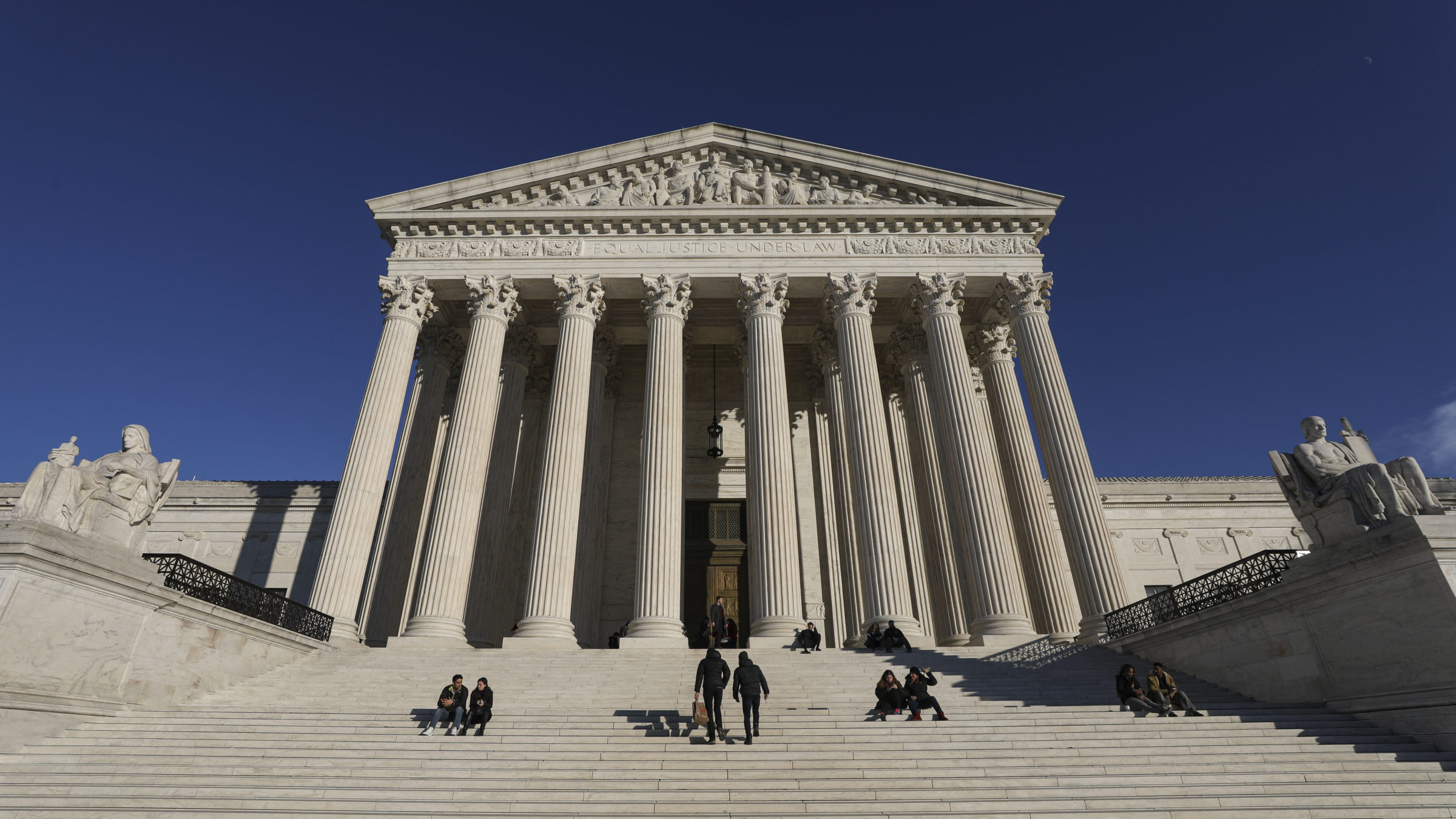Last year, the Republican-controlled Texas state legislature passed a law that the state’s chapter of the ACLU described as “one of the most extreme pieces of anti-immigrant legislation any state legislature has ever enacted.” And on Tuesday, in yet another horrific case captioned United States v. Texas, the Supreme Court voted 6-3 to allow that law to take effect.
Briefly! More on this in a moment.
Senate Bill 4, signed by Governor Greg Abbott in December, seizes vast powers for the state that the Constitution reserves to the federal government. It empowers state and local police officers to subject anyone they suspect of being a noncitizen to questioning, arrest, jail, and deportation to Mexico, for example. It makes illegally crossing the border a misdemeanor punishable by up to six months in jail, and subjects repeat offenders to prison sentences of up to 20 years.
Setting national immigration policy is, as a matter of basic constitutional law, a matter for the federal government. There are federal guidelines about who can be removed from the United States, how, under what conditions, and to which country. But the regime set up by SB 4 would be carried out by any yahoo with a badge, with no federal involvement or oversight. Texas Republicans, unsatisfied with the Biden administration’s immigration policy, have elected to make themselves president by committee instead.

(Photo by Celal Gunes/Anadolu Agency via Getty Images)
Last month, a federal district court blocked Texas from implementing the law, and explained in detail over the course of 114 pages how the law was clearly unconstitutional. The U.S. Court of Appeals for the Fifth Circuit, the most conservative federal appeals court in the country, handed down a four-sentence ruling that stayed the lower court’s order with no explanation. The Biden administration requested that the Supreme Court vacate the Fifth Circuit’s stay, which would restore the district court decision blocking the law from taking effect. But on Tuesday, again without explanation, the six conservative justices rejected the request.
That sent the matter back to the Fifth Circuit, which hastily dissolved its administrative stay late Tuesday night and scheduled oral argument for Wednesday morning on Texas’s formal request for a stay pending appeal. That means that after being effective for eight-ish hours, SB4 is on hold again, for who knows how long.
For this six-justice conservative supermajority on the Supreme Court, recklessly destabilizing the constitutional order is becoming a bad habit: United States v. Texas is the second time in three years that the Court has joined the state in giving the middle finger to federal law, and to anyone with the audacity to live inside the boundaries of the state while outside the boundaries of patriarchy and white supremacy.
Back in 2021, Texas Republicans passed SB8, the infamous “bounty hunter” law that effectively banned abortion in the state even though Roe v. Wade remained in effect. Again, a district court had temporarily blocked the law’s enforcement; again, the Fifth Circuit stayed the district court proceedings; and again, the Supreme Court was asked to vacate the stay, and shrugged. In an oppressive case of déjà vu, the Republicans on the Supreme Court are again acting as witting accomplices to Republican lawmakers in Texas in their quest to upend federal law so they can inflict greater harm on women and people of color.
In both instances, some of the Court’s conservatives tried to absolve themselves of responsibility by pointing to procedure. In the bounty hunter law case, Whole Woman’s Health v. Jackson, the majority justified its failure to intervene by saying the case presented “complex and novel antecedent procedural questions” that tragically prevented the Court from taking action to uphold Roe in the nation’s second-most populous state.
There is no majority opinion in the SB4 case, beyond a two-sentence order denying the request for a stay. Justices Amy Coney Barrett and Brett Kavanaugh, however, did provide a separate mealy-mouthed concurrence that tries to put an academic gloss on the outcome: Because the Fifth Circuit issued an administrative stay rather than a stay pending appeal, they say, this case is “in a very unusual procedural posture.” Sound familiar?
This distinction matters because Texas should lose a request for a stay pending appeal; the legal test would require the state to make a “strong showing” that it is likely to succeed on the merits, which Texas would have a tough time doing in a case that, again, dumps more than a century’s worth of immigration law in the garbage. By labeling its stay “administrative,” the Fifth Circuit allowed Texas to evade this test altogether; by taking this label seriously, the Supreme Court blessed the exact same stunt. Now that the case is back at the Fifth Circuit, which will consider whether to grant Texas’s request for a stay pending appeal for real this time, the Fifth Circuit should theoretically have to explain itself.
Barrett and Kavanaugh’s opinion left open the possibility that their patience might run out at some undetermined point in the future, and that they would treat the Fifth Circuit’s “administrative” stay as the “stay pending appeal” that it is. This, however, was a hypothetical possibility in their opinion, and the legal authority of cops in Texas to harass people of color while playacting as immigration officers was not.
Justices Sonia Sotomayor and Ketanji Brown Jackson were unfooled by their colleagues’ pseudointellectual masturbation. In a dissenting opinion joined by Jackson, Sotomayor wrote that the decision permits “a temporary administrative stay to alter the status quo that has existed for over a century,” and greenlights a law that will “sow chaos” and “profound disruption.” They were right, perhaps even sooner than they expected.

(Photo by Chip Somodevilla/Getty Images)
The consequences of the Court’s decision are indeed chaotic and disturbing, even setting aside the Supreme Court and the Fifth Circuit doing this will-they-won’t-they romcom act. Implementing SB4 will expose thousands of people to wrongful arrest and removal from the country. It will expose countless more to racial profiling and over-policing. It will disrupt the balance of federal-state power that has been in place since the Civil War. It will disrupt foreign relations agreements, deny relief to asylum seekers, and violate the country’s responsibilities under international treaties. And, ironically, SB4 will make it more challenging for actual immigration officers to do their jobs. The Court’s unsigned order discusses none of these implications. But as Sotomayor wrote in dissent, “Procedure can be just as consequential as substance.”
By letting yet another unconstitutional law go into effect under the guise of procedural challenges, the Court is neither applying the law nor staying out of political affairs. It is working with Republicans to change laws and policies they don’t like, in order to hurt people they like even less.




